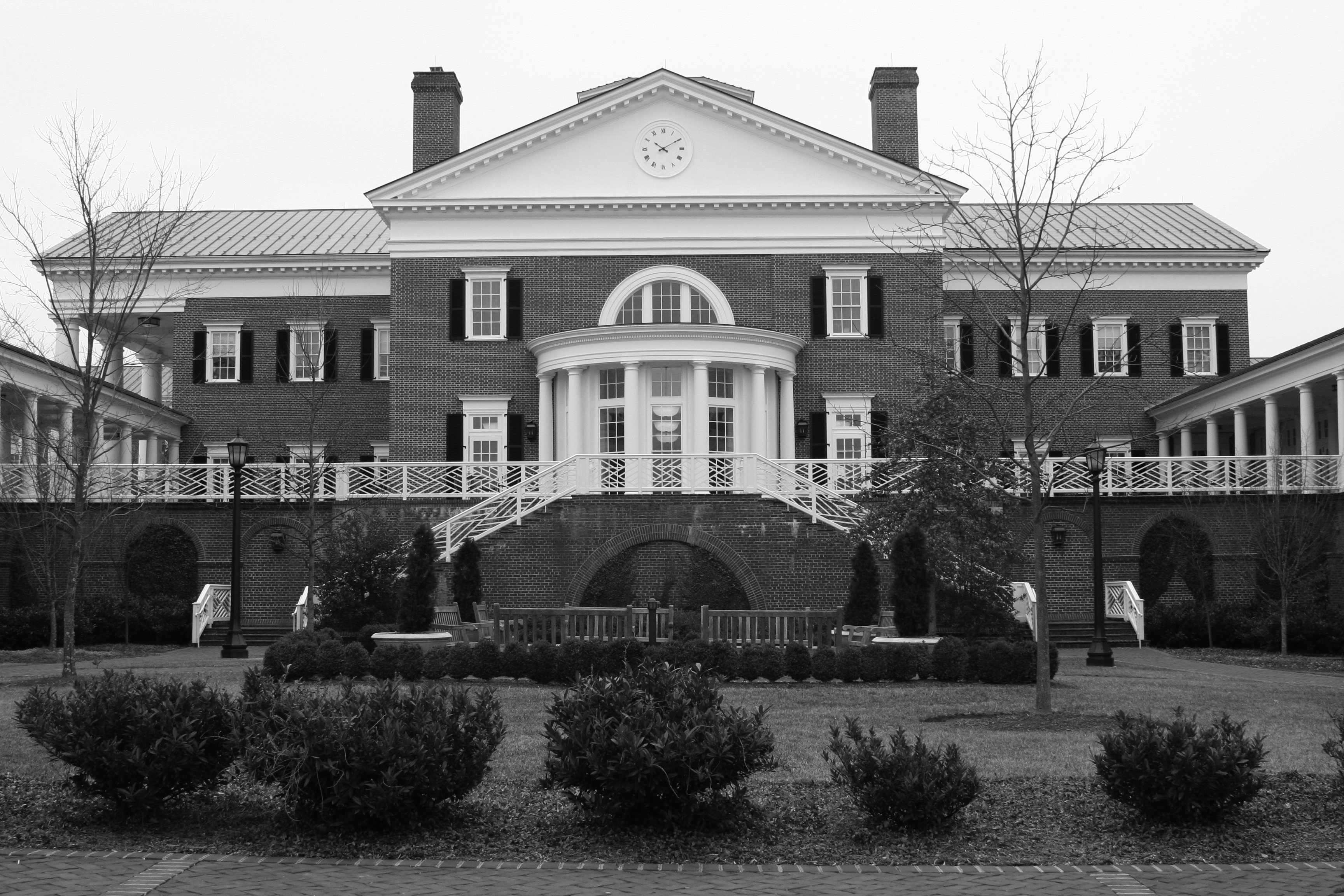
The renowned Darden Business School at the University of Virginia has thrown its weight behind an innovative entrepreneurship course for prisoners. (Wikimedia Commons)
CHARLOTTESVILLE, VA. – It all started with a letter.
A few years ago, a prisoner at Pocahontas State Correctional Center sent a carefully typed message to the Darden School of Business at the University of Virginia (UVA) in Charlottesville, asking what the famous university could do to help him find employment.
The answer? Nothing.
But Robert F. Bruner, the dean of the business school, gave the letter to Gregory Fairchild, a UVA professor who was ranked as one of the Top 10 Business School Professors in the World by CNN/Fortune in 2012. Bruner asked Fairchild about the possibility of preparing a business curriculum for inmates.
The idea intrigued Fairchild, who has always believed in the importance of reaching out to prisoners.
“Matthew 25 is pretty clear,” Fairchild, who grew up attending church, said in an interview. “When we go to the prisoner, Jesus says that we are going to Him. So that was always a part of my perspective. I always knew that was important.”
Before long, Fairchild met with leaders in Richmond, Va., to obtain approval for a pilot entrepreneurship training program at Dillwyn Correctional Center in Virginia’s Buckingham County.
Commitment to Learning
The pilot program, which began in April 2012, brings together groups of dedicated inmate students at Dillwyn, a men’s prison, and Fluvanna, a women’s prison. Three times a week, students participate in courses facilitated by UVA business school professors and graduate students, who teach using the Socratic method. The Socratic method emphasizes questions and answers instead of lecturing, so that students have an opportunity to share their own real-life experiences and knowledge.
Fairchild and his wife, Tierney, an education expert who helps facilitate the classes at Fluvanna,have been impressed by the dedication of their students. Fairchild recalls how students made their own version of an Excel spreadsheet, carefully calculating figures by hand. Tierney was struck by the ingenuity of a woman who went from cell to cell, asking other inmates about what foods they liked and what they would be willing to pay for them, so that she could know what prices to charge for meals at a restaurant she wants to open one day.
Inmates who successfully complete all of their classwork and math testing, write a business plan, and pass a final exam are eligible for an entrepreneurship certificate from the prestigious business school. The Fairchilds hope this will make it easier for ex-prisoners to find jobs or start their own businesses instead of returning to prison.
One of those inmates is Kirk Smith, a Virginia man now wrapping up a 20-year sentence, who was interviewed by the Darden Report for an article in 2012.
“I’m still scared,” said Smith, who plans to use his new entrepreneurial skills to start a custom painting business. “At times, I was pulling my hair out. But now I have more confidence. Now I believe I can start this business. I know I would have failed miserably without this class.”
Even though the extra hours are sometimes long, the Fairchilds continue the program because they believe the entrepreneurship program can help ex-prisoners gain the confidence and skills they need to succeed.
“I believe people can change,” Fairchild told the Darden Report. “I believe educational institutions can make a big difference. This is a world-class university and a world-class business school, and developing leaders to improve society is our stock-in-trade. We usually get the most prepared, the most advantaged students. I believe we can use our skills to teach the least prepared and the least advantaged. I believe this is possible.”
A Growing Movement
The Fairchilds are not first to believe that real-world entrepreneurial skills can help ex-prisoners compete in the job market. Before launching the program, Gregory traveled to Texas to study its Prison Entrepreneurship Program (PEP), a nonprofit organization founded in 2004 by former Wall Street professional Catherine Rohr after she toured a prison. She noticed that prisoners had lots of hidden potential, and she started a program to help them develop business plans for a competition judged by leading executives. Over the last decade, PEP graduates have enjoyed some of the best rehabilitation rates in the country. The vast majority never return to prison.
It’s still too early to tell whether, like PEP, the Darden program will helps its graduates pass the ultimate test by succeeding when they reenter the community. But the Fairchilds are optimistic. They trust that employers will see what they have grown to see in their students: that they belong in a suit and tie instead of a prison jumpsuit.